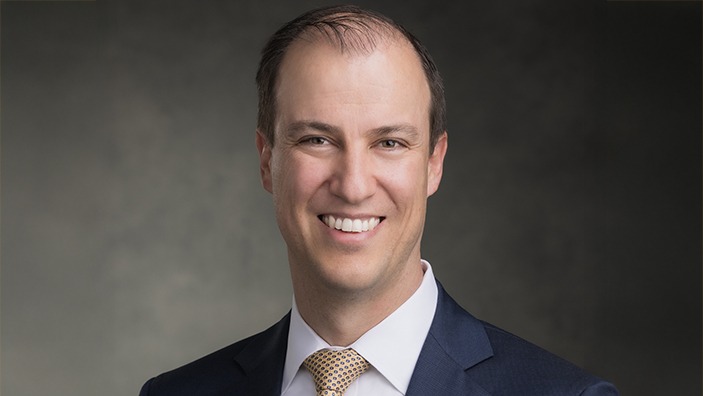Business Doctorate Graduate
Bachelors in Management/Corporate Finance (Brigham Young University), Masters in Healthcare Administration (Cornell University)
Year of entry: 2020 (graduated 2024)

My details
Contact details
Biography
Carter Dredge is a global healthcare thought leader and transformationalist, and currently serves as the executive director of the Intermountain Health Institute, where he partners with some of the world’s top thinkers and doers to create novel solutions to complex problems and develop trusted and effective leaders.
Prior to his current role as a senior executive at Intermountain Health, Dr Dredge served at SSM Health as Senior Vice President and Lead Futurist and as Chief Strategy & Transformation officer, overseeing strategy, innovation, mergers and acquisitions, research and development, analytics, and business development.
Dr Dredge has been recognised by Modern Healthcare magazine as one of the ‘Top 25 Innovators’ in the United States and was the first American ever accepted into the business doctorate programme at the University of Cambridge in the United Kingdom – a programme specifically designed for executives who had built or who currently lead major corporations.
Dr Dredge has served and continues to serve on numerous boards of healthcare services organisations, insurance companies, and start-ups (several of which he co-founded) – and he loves the challenge of creating new businesses – particularly those focused on serving those most in need.
He is deeply committed to venture-philanthropic innovation, education, and leadership development, and is a Fellow of the Aspen Institute and a member of the Aspen Global Leadership Network.
He holds a bachelor’s degree in business management/corporate finance from Brigham Young University, a Master of Healthcare Administration from Cornell University, where he also taught a course on alternative healthcare payment design, and a Business Doctorate from the University of Cambridge where he also is a Fellow at Cambridge Judge Business School.
Research
Research topic
Misaligned Business Models and Market Competition Failures: An Initial Focus on Primary Care Innovation
Supervisor
News and insights
Generic drugs can be supplied at savings of over 60% for patients and 90% for payers through a health care utility model that emphasises reliable supply at affordable cost rather than profits, says a new study from Cambridge Judge Business School and US healthcare firm Intermountain Health.
Research centre news
Generic drugs: how to boost supply and lower prices
Increased drug supply security and reduced costs has been achieved by Civica Rx, a health care utility taking a fresh approach, says study in NEJM Catalyst authored by 2 Cambridge Judge Business School academics.
Conference at Cambridge Judge Business School explores the development of Health Care Utilities that scale up innovations to reduce the cost of medicines and other health care products.




